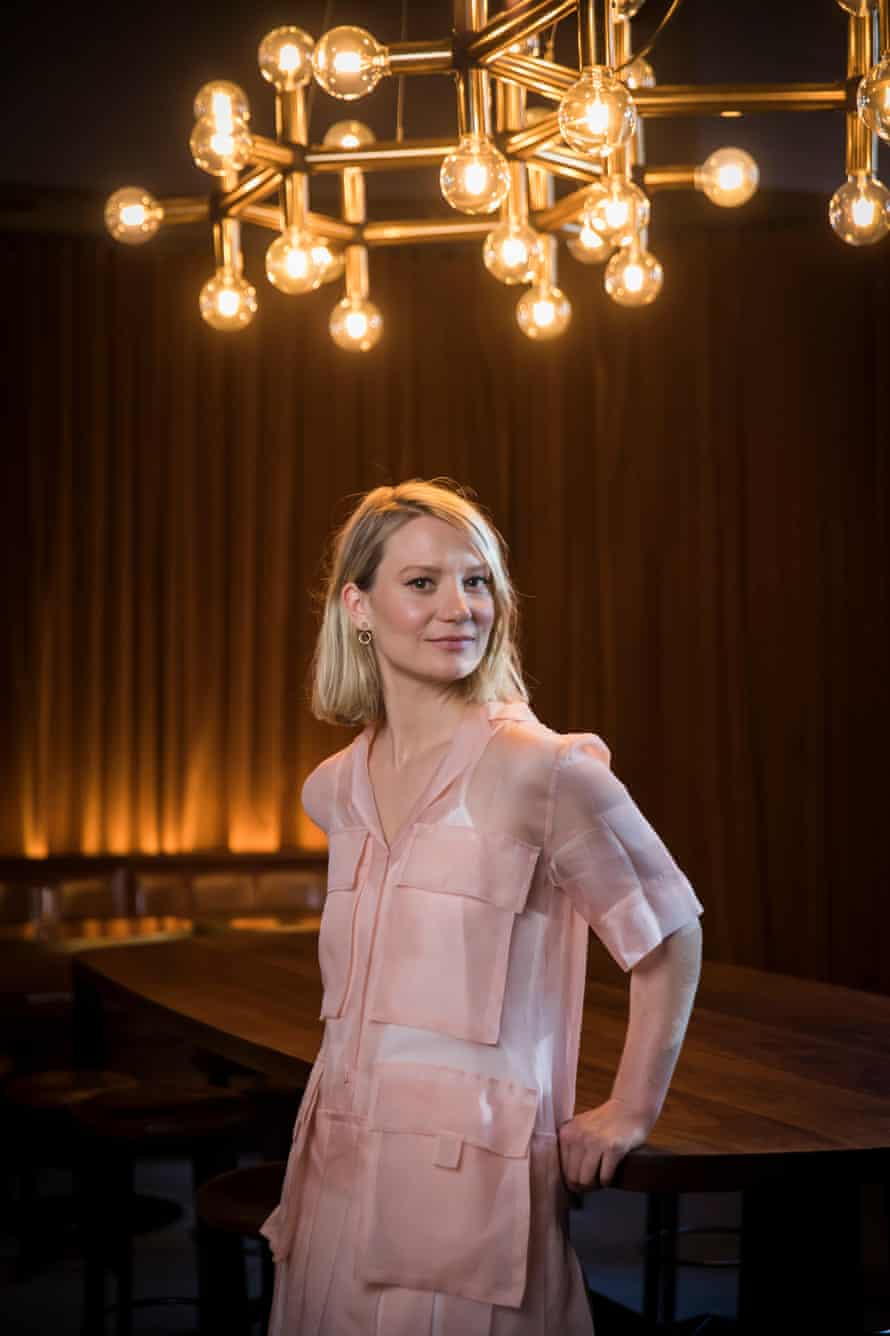 |
| ‘I feel less ambitious about my career,’ says Mia Wasikowska, who has returned to Australia for a quieter life. Photograph: Anna Kucera |
Mia Wasikowska on Judy & Punch and gendered violence: 'How do you break that cycle?'
The actor’s new film – a feminist take on the puppet show – is a dark revenge tale for the #MeToo age
Thu 21 November 2019
M
ia Wasikowska is distracted. Her eyes flicker between me and the doorway at the boutique cinema where we meet in Sydney, as patrons bustle out. She’s hyperaware of the flurrying chaos; it’s clear she feels more comfortable in the quiet.
“I always find it trippy when I do press at home … I feel almost too relaxed and I’m not in the mode of doing this,” the Canberra-born actor says, waving her hand at the general surroundings. “You know,” she pauses. “It’s nice.”
Wasikowska, 30, is dressed in a flowy pink frock for the photoshoot; its dreamy and reminiscent of her role in 2010’s Alice in Wonderland. While her depiction as teen gymnast Sophie in HBO’s In Treatment launched her career overseas, it was Tim Burton’s highly elaborate adaptation of Lewis Carroll’s story that catapulted her into mainstream Hollywood at the age of 20. Her portrayal of Alice showcased her chameleon-like quality, with a sometimes subtle, sometimes expressive face that can describe emotional depths louder than words.
Since then she has carved out an unconventional career path, choosing “strange stories and unusual characters” in films including Park Chan-wook’s Stoker and Guillermo del Toro’s Crimson Peak. Wasikowska’s eyes light up talking about those parts: “I feel like you get a chance to play these emotions that are much harder to express in real life. It’s more fun to play [roles that have] their internal mess externalised.”
In line with that ethos comes her latest part: the titular character in Judy & Punch. The writer-director Mirrah Foulkes’s film is a dark, feminist reinterpretation of the traditional 17th century British puppet show, and marks Wasikowska’s first Australian film since 2013’s Tracks. While that film’s protagonist had a sunburnt toughness, Judy is more quietly fierce.
Set in the mythical town of Seaside, the film is marked by odd tonal shifts, swinging between playful slapstick and more sinister humour, where “stoning days” and witch trials are treated as much for entertainment value as Professor Punch’s (Damon Herriman) increasingly “punchy” marionette show. And then a startling moment of unforgivable neglect shifts the narrative into a dark revenge tale, as Judy powerfully seizes control of her own fate from her blundering, boozy spouse.
The actor was attracted to the “creative licence” she was given to play with and the fantastical elements of the period drama. “I was really blown away by how weird the world Mirrah created was, and the very odd language the characters used. It was really cool how she pulled it together, very authentically and with heaps of her imagination.”
Judy stays so long in her abusive marriage, Wasikowska says, because she doesn’t want to give up on the fantasy of her life, with her husband and baby at her side. “Judy would be perfectly happy staying where they are, and being around people that she knows and loves,” she explains. “So she continually turns a blind eye and forgives him for his behaviour. And unfortunately it takes a tragedy for her to really find her strength.”

Although the film was conceived before #MeToo, it resonates with the modern politics of the movement. It also speaks to staggeringly high statistics of domestic violence and violence against women
and highlights how brutality in the world around us can infiltrate the home.
“That’s exactly what the Punch and Judy show did in a way – in these crass, violent characters that you’re showing to children,” Wasikowska says. “And how can you expect it not to filter back into the family home? How are you supposed to break that cycle? It becomes a bit like your diet.”
While she was initially sceptical about the #MeToo movement’s potential for a long-term impact, Wasikowska now sees there has been a cultural shift – within and outside Hollywood – that has made it easier for women to speak out. “I think there have been repercussions that will make it hard to be as predatory, but also the stigma has been taken away from just talking about it,” she says.
Having experienced the ups and downs of the industry for more than a decade, what appeals to Wasikowska now is predictability – or what she calls “an enjoyable nice life”. That means settling down in Sydney.
“I mean, acting’s been great. But I’m tired of it. I’m a full retiree,” she says, only half-joking; she wants to pursue other interests now too.
“I feel less ambitious about my career,” she admits. “I don’t like a lot of change – I like simple stuff. I like being at home.”


No comments:
Post a Comment